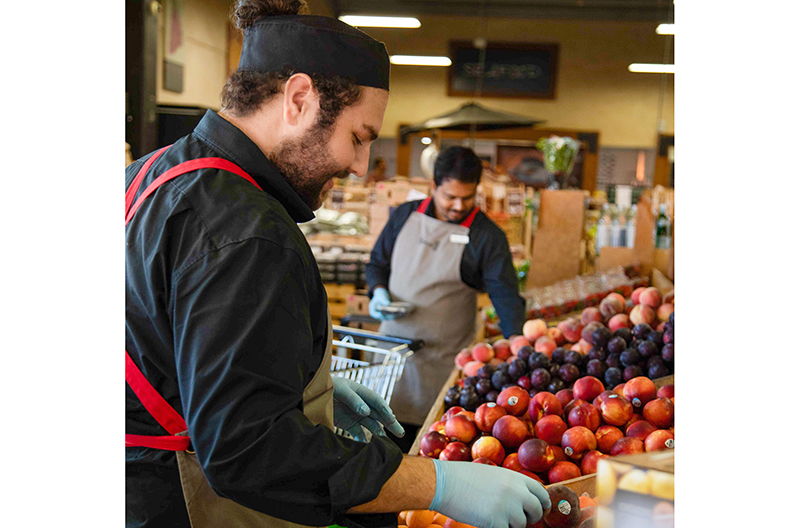“When we looked at the grocery landscape, we came to believe that fresh was the future of this industry.” That’s how Nathan Fenner, co-founder of San Francisco, California-based Afresh, described the reasoning behind starting the technology company.
Afresh’s mission is to eliminate food waste and create greater food accessibility. The A.I.-powered software optimizes order forecasting and store operations for brick-and-mortar stores, specifically for their fresh departments, Fenner told Shelby Publishing’s EVP Bob Reeves during a recent interview.
At the time of the company’s founding in 2016, Fenner said fresh products were becoming a key marketing point.

“Grocers were competing with pure-play online players and each other,” Fenner said. “You can buy a box of Cheerios anywhere. It’s your fresh offerings. How good is your produce? How good is your meat? What’s your prepared foods selection? That’s how people pick where they shop.”
That philosophy continues today.
“Stores are being laid out now to make produce departments, for example, their hero departments … you have to be world-class in how you handle your fresh food. You’ve got to win in fresh observation,” he said.
However, fulfillment for these high-demand sections is not built for modern times.
“When we looked at supply chain management software and inventory management software … it was all pretty legacy,” Fenner said. “If you look at when this software was built, a lot of it was built in the 1980s.
‘More so than just being legacy software, it had all been built for things that come in boxes and have barcodes. It was all built for non-perishable goods.”
According to Fenner, this is what sets Afresh apart from competitors.
“They’re using the same approach in grocery that they’re using to manage the supply chain of auto parts, electronics and clothing,” he said. “And unsurprisingly, when they’ve historically tried to bring those technologies into the fresh space, they don’t work that well.”
Afresh’s inventory management system is designed specifically for perishable items. The company’s three founders – Fenner, CEO Matt Schwartz and Volodymyr Kuleshov, chief technology officer – were uniquely positioned when they came together to launch the company’s first product.
All three were graduate students at Stanford University. At the time, Fenner was a robotics engineer and lecturer, while Schwartz was earning an MBA in food ag systems and Kuleshov was finishing his doctorate in computer science with a focus on AI.
Afresh’s first product was a store-level replenishment solution for produce, Fenner said. The tool was used by produce managers to determine the appropriate amount of each product the store should bring in each day.
“As of now, I believe 13 percent of all produce that’s sold in the U.S. in grocery stores is ordered through our solutions,” Fenner said.
Afresh has expanded its management tools to the meat and seafood, foodservice, deli and prepared foods departments.
“We’re working on expanding upstream in the supply chain for things like distribution centers, and round out that suite and that platform of things with corporate level toolings as well,” Fenner said.
Earlier this year, Afresh completed its chainwide implementation for Albertsons Companies.
“Afresh is a great tool in helping us deliver the freshest items possible,” said Jen Saenz, chief merchandising officer of Albertsons, in a special presentation video released at the time of implementation.
In the same video, Maria Latushkin, group VP of technology and engineering for Albertsons, said Afresh is “able to work with imperfect data and is geared toward having the right data to making the best decision.”
While the product has found a home in large national chains such as Albertsons and Safeway, Fenner admits there are some issues with bringing it to independent grocers.
“Basically, [the issue is] your bang for your buck in terms of integration in order to set them up,” he said. “If you have 100 independent grocers, and they all have different kinds of data schema, it takes 100 times more work than integrating one chain with 100 stores.”
Read more technology news from The Shelby Report.

